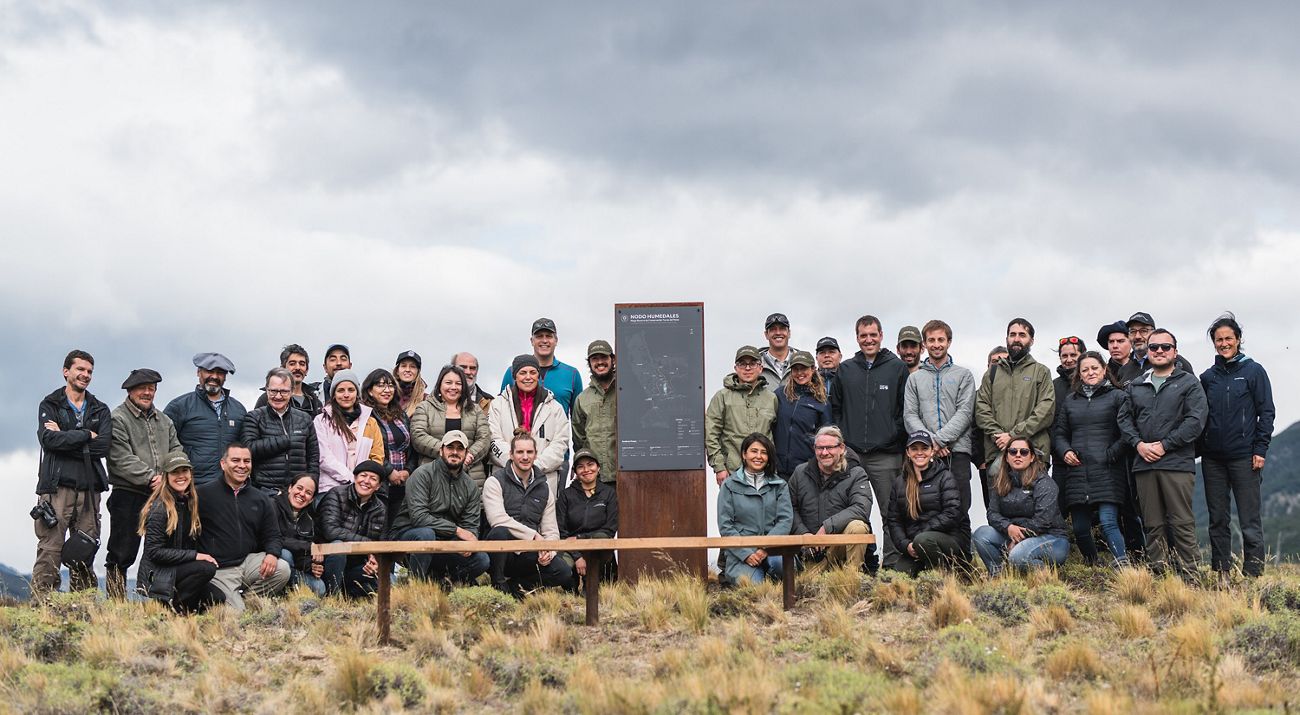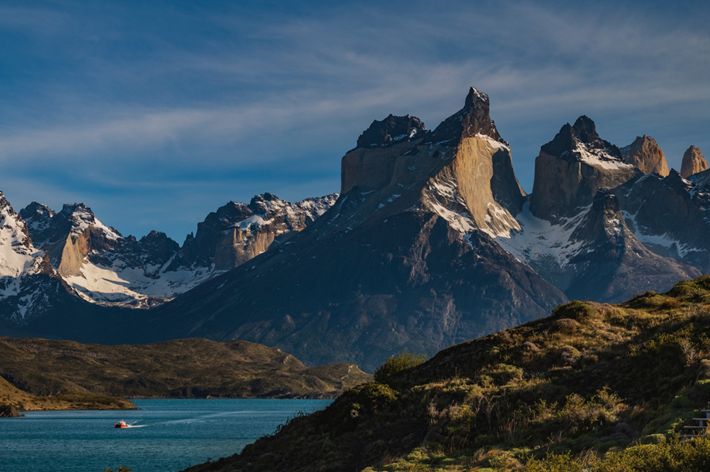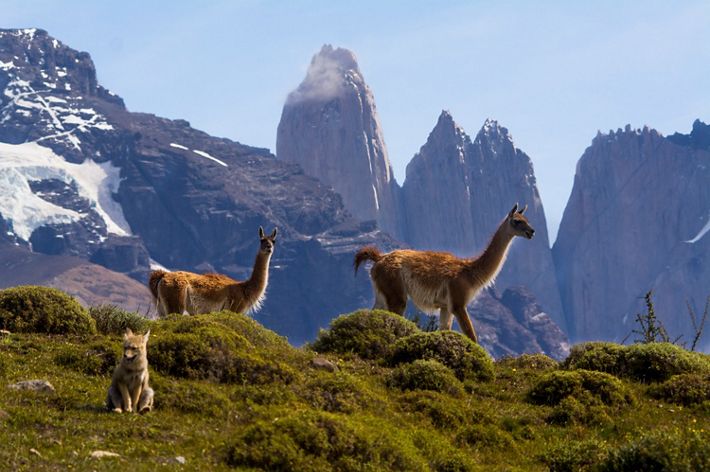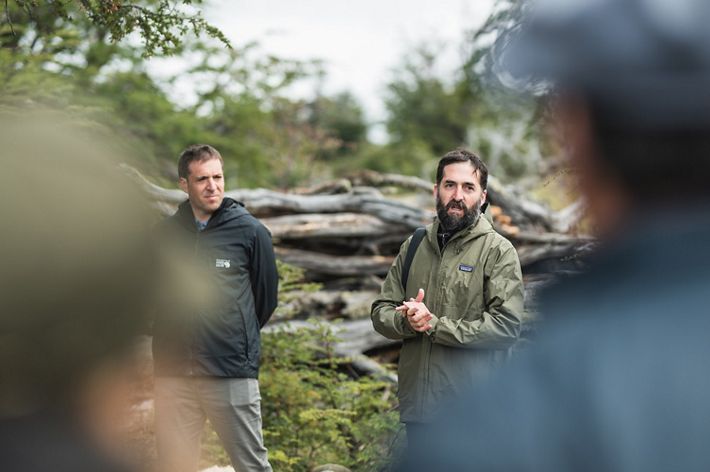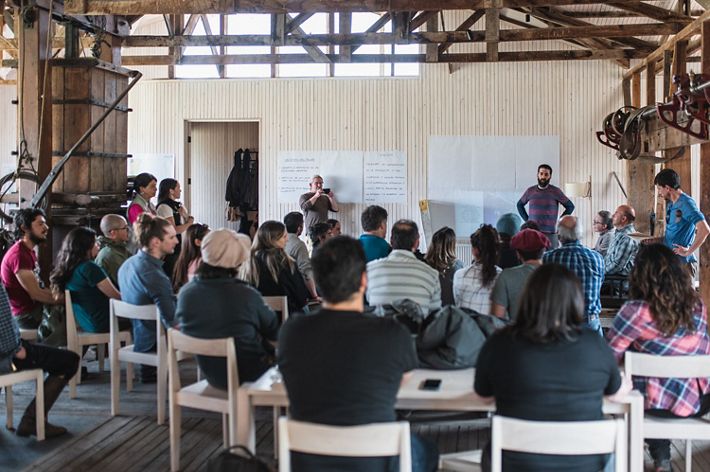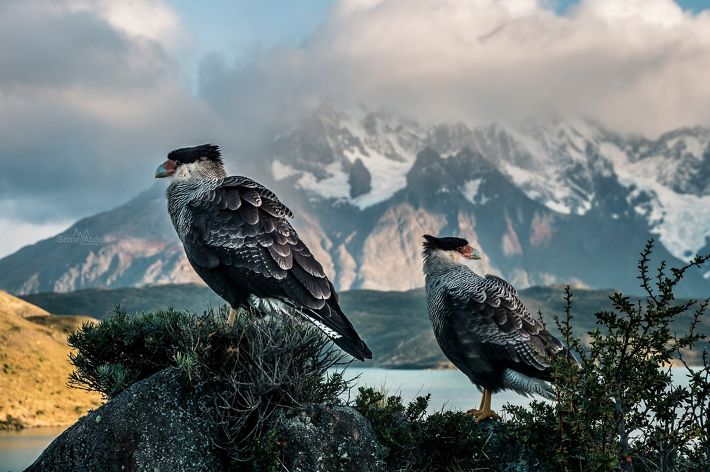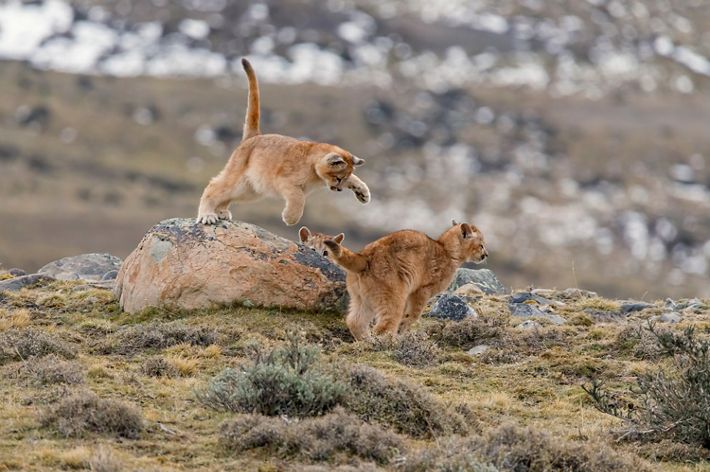The Nature Conservancy and Explora Team Up for Conservation in Patagonia
A new conservation collaboration between sustainable tourism company Explora and The Nature Conservancy will protect part of Chile’s Patagonia.
Torres del Paine landscape in Patagonia, Chile
Explora and The Nature Conservancy (TNC) have initiated work to conserve and protect the Chilean Patagonia, an iconic landscape and global conservation priority for TNC. The collaboration constitutes a milestone for Explora first private protected area in Patagonia, the Torres del Paine Conservation Reserve, which seeks to craft a new model of regenerative tourism that can be replicated in other territories.
The conservation model to be implemented in the reserve is based on a methodology known as open standards planning, which actively involves neighboring communities and other social and environmental actors in co-creating a vision for the area, prioritizing initiatives, and working toward conservation.
The new reserve is home to unique biodiversity including Chilean flamingos (Phoenicopterus chilensis), condors (Vultur gryphus), pumas (Puma concolor), guanacos (Lama guanicoe). It has 32% forest cover, 20 species of mammals, over 150 species of birds, and 131 species of flora. It is located within the world-famous Torres del Paine biosphere reserve that spreads across more than 700,000 hectares of pristine Patagonia landscapes and includes the Torres del Paine National Park. The goal of this collaboration is to integrate exploration, conservation, and scientific work in this unique place in the world, preserving the geological, paleontological, and cultural identity and history of Patagonia over time.
Guanacos and grey fox, inhabitants of Patagonia.
Quote: Juan José Donoso
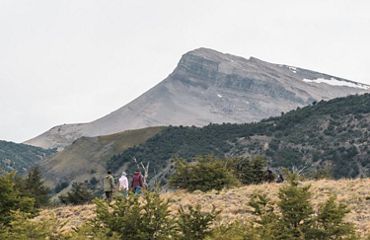
Patagonia is one of the most important iconic landscapes in Latin America, and its conservation is catalyzed by working in radical collaboration with people from across the board.
Juan José Donoso, Executive Director of TNC Chile, explained that TNC is leading conservation planning in the area, in close collaboration with local people and institutions. This will enable the vision for the future of the zone to reflect the real needs of local people, including knowledge generated and passed down to generations in the region. Furthermore, Explora and TNC are working to legally protect the new reserve ensuring its conservation in perpetuity and its use in harmony with nature, through Chile’s Derecho real de Conservacion (DRC) easement law. A rigorous management plan will ensure permanent monitoring to preserve key flora, fauna, freshwater, and cultural heritage, all of which will be identified by TNC’s conservation plan.
"We are convinced that this initiative with Explora will inspire more people and institutions to move towards protecting the planet by 2030, creating new financing models for nature conservation," explained Donoso at the inauguration of the reserve.
Juan José Donoso at Torres del Paine Conservation Reserve Inauguration
In line with the conservation plan, the Explora Conservation Reserve will offer self-guided trails open to the public, with key information for visitors about the region, and lookout points to enjoy the stunning landscape. Approximately 1% of the reserve will be used for infrastructure development, and the rest will be earmarked for conservation, protected by the DRC.
"This reserve embodies how Explora has decided to approach and deepen our commitment to conservation. This initiative allows us to incorporate all our experience in exploring remote territories and connecting people with nature, with the imperative need to work collaboratively to protect it," explained Gonzalo Undurraga, General Manager of Explora, at the inauguration of this reserve.
Participatory Conservation Workshop
At the reserve's inauguration, Explora and TNC held a participatory conservation workshop. "The Explora conservation reserve is in a unique location: the Torres del Paine biosphere reserve. There are other private landowners in the area with varying interests, ranging from cattle ranching to tourism. We invited stakeholders such as CONAF (the National Forest Corporation a state-owned agency), the Ministry of the Environment, the regional government, private owners, and of course, Explora to co-design cross-cutting conservation solutions for the territory," explains Maryann Ramírez, Director of Strategy and New Conservation Models of TNC Chile.
Participatory Conservation Workshop
Caranchos at Torres del Paine, Patagonia
The conservation workshop comprised two days of activities aimed at defining work teams, the scope of the plan, and conservation objects (what needs to be conserved in the zone), to set the conditions for developing actions to enable and encourage biodiversity protection and a new way of appreciating and valuing the territory. "We will generate innovative conservation solutions that are scalable throughout the country. Working with private owners is very relevant if we want to change and improve the conservation of our ecosystems," explained Ramírez.
The workshop delivered a report outlining the vision of the conservation plan for the reserve. The report also reflects the open standards methodology, the area of influence, and possible conservation objects in the area, which can be natural, cultural, and other types, such as geographical characteristics.
TNC is leading the process to develop the conservation plan. This will include interviews with key stakeholders and a series of workshops to identify conservation objects, threats to their health, and the actions necessary to address them, among other elements. The final conservation plan will determine the steps for the next five years.
Quote: Conservation workshop report
To promote the conservation of Patagonia, its biodiversity and culture, based on collaboration, exploration, and science, for the well-being of people and their sustainable development
Pumas at Torres del Paine, Patagonia
